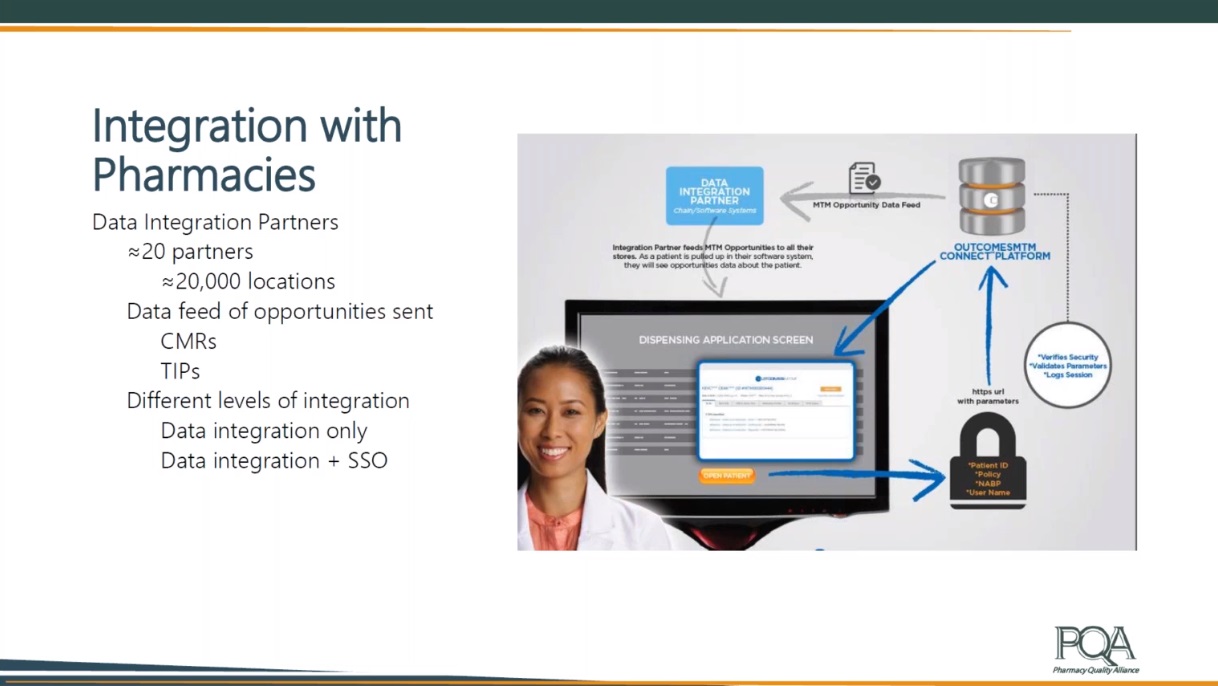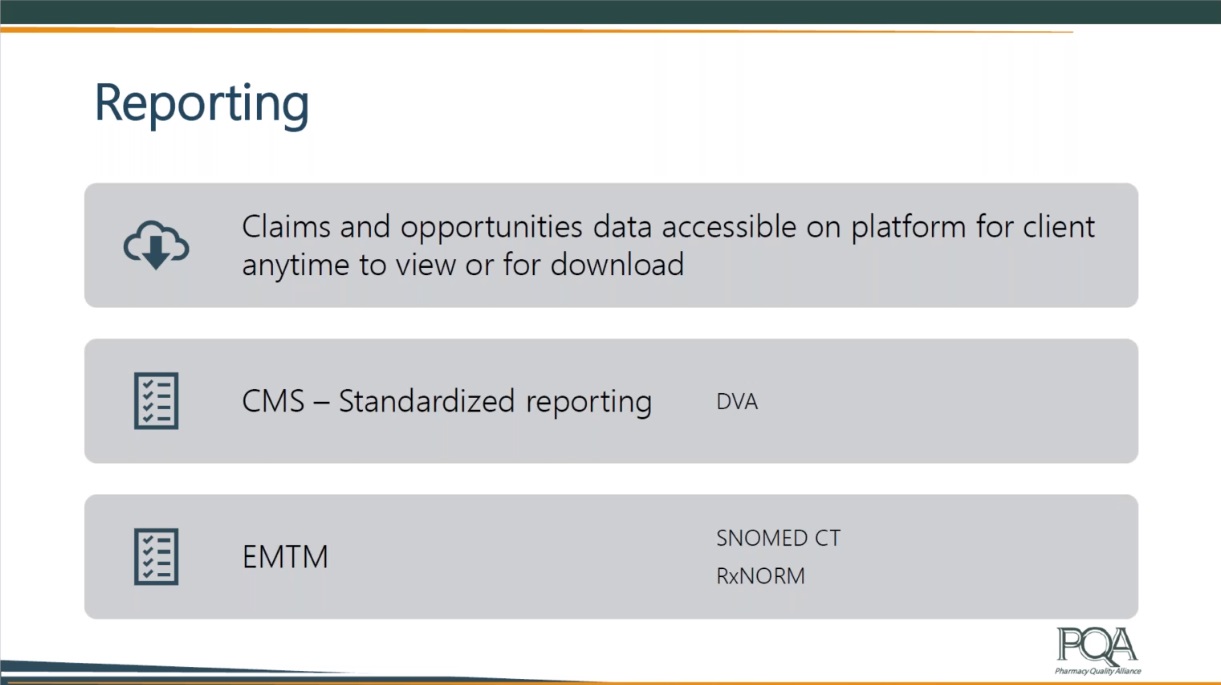Amber Baybayan, a Senior Clinical Services Associate at OutcomesMTM, spoke at PQA’s Data and Interoperability Advisory Group (DIAG) meeting on June 22. She discussed data integration in medication therapy management.
This blog provides an overview of Baybayan’s presentation. You can view a recording of the DIAG meeting and read more about it in a PQA blog, which outlines PQA’s work to address data infrastructure, standards and interoperability.
The OutcomesMTM leverages the personal relationships of pharmacists in community settings to deliver Medication Therapy Management (MTM) services that are then documented on a user-friendly web-based platform. These interactions can reduce healthcare costs while improving the outcomes of members’ medication therapies.
 Partners that use the MTM platform include Medicare, Medicaid, commercial and employer groups. OutcomesMTM has a network of around 50,000 different locations that are documenting services. Also, there are more than 100,000 pharmacists that are trained to document these services within the platform.
Partners that use the MTM platform include Medicare, Medicaid, commercial and employer groups. OutcomesMTM has a network of around 50,000 different locations that are documenting services. Also, there are more than 100,000 pharmacists that are trained to document these services within the platform.
“All of our different partners that we work with send us our data,” Baybayan explained. “And then, with that data, we can identify members that could be targeted for programs and targeted for other interventions.”
Baybayan then shared the company’s Targeted Intervention Program, or TIPs, in which data is sent to pharmacists to help them identify patients that may want or be eligible for certain clinical interventions.
In the TIP program, client partners send data about an MTM opportunities to OutcomesMTM who then identifies eligible members and interventions based on that data. The company’s “Connect” system alerts pharmacists to a Medication Therapy Management opportunity, which is then documented in Connect when administered. The results are then reported to the client. Participating pharmacists include network, telephonic or health plan pharmacists.
Baybayan said the types of data OutcomesMTM receives includes eligibility data, prescription claims and medical claims. Prescription claims data allow OutcomesMTM to target members for different services, identify members for eligibility in a program and inform TIP programs. Though provided by fewer partners, medical claims data helps with refining the target interventions while also giving additional data beyond prescription information. These can help patients with diseases who may be missing medications or patients with chronic conditions who need information on chronic condition management over time among others.
All of these data points help to create opportunities that then appear in the dispensing software. Pharmacists can log in to the platform and get an overview of a patient’s overall health and medication history, while also seeing targeted interventions for which the patient may be eligible.
Of the 50,000 participating locations, 20,000 are data integration partners, meaning they receive OutcomesMTM’s identified opportunities through a file feed and are able to display these opportunities directly in the dispensing software. This allows a pharmacist to see who is eligible without having to use a separate platform. This feed also displays Comprehensive Medications Reviews (CMRs) and TIPs.
“Traditionally, you think about pharmacies in the community setting only delivering services to members,” Baybayan said. “However, we also have quite a few pharmacies that are embedded in the clinics that are documenting services as well, so that's a bit of a different model. They have access to additional information and access to prescribers as well.”
 In addition to clinic pharmacists, OutcomesMTM works in long-term care settings and with Patient Engagement Teams of pharmacists, who call patients while they are at home.
In addition to clinic pharmacists, OutcomesMTM works in long-term care settings and with Patient Engagement Teams of pharmacists, who call patients while they are at home.
As part of the MTM program reporting, Baybayan noted that the claims and opportunities data is accessible on the OutcomesMTM platform for a client to view or download anytime. In addition, the company offers standardized reporting in line with Centers for Medicare and Medicaid (CMS) requirements and translates claims to align with both SNOMED CT and RxNORM to support enhanced learning in the National Library of Medicine Enhanced MTM program.
